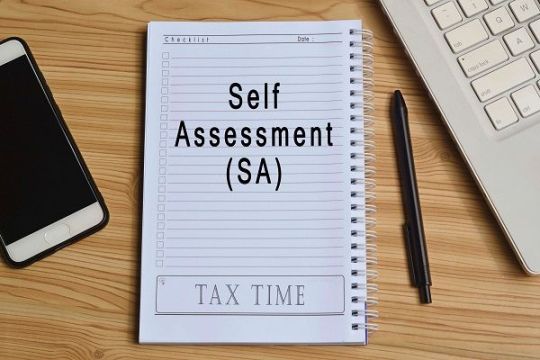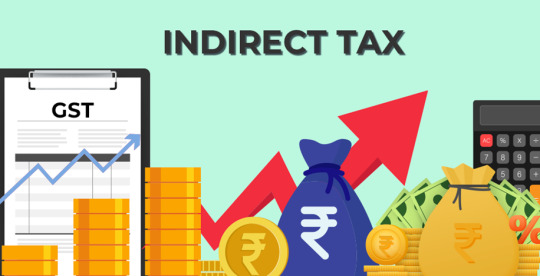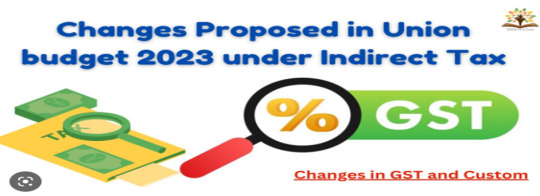#income tax assessment order
Text
Fortis Healthcare Faces Income Tax Assessment Order: What Investors Need to Know
Fortis Healthcare Ltd, a prominent player in the healthcare sector, recently disclosed that its subsidiary, Fortis Hospitals Ltd, has received an income tax assessment order amounting to ₹89.53 crore, inclusive of interest charges amounting to ₹9.54 crore.
In a regulatory filing with the stock exchange, Fortis Healthcare stated, “This is to inform you that Fortis Hospitals Limited, a material…

View On WordPress
#ARPOB#EBITDA#fiscal year#Fortis Healthcare#Fortis Hospitals Ltd#income tax assessment order#investment decisions#investor update.#market update#net profit#revenue growth
0 notes
Text
What does self assessment mean for income?
Introduction
Self-assessment is a fundamental aspect of managing personal finances, particularly when it comes to income. It refers to the process of assessing and reporting one's income, deductions, and tax liabilities directly to the tax authorities. In this blog, we will explore what self-assessment means for income and why it is an essential responsibility for individuals.
Understanding Self-Assessment for Income
Self-assessment for income involves individuals taking the initiative to assess and report their income to the relevant tax authorities. It is a mechanism through which individuals declare their earnings, deductions, and tax liabilities, enabling accurate tax calculations and compliance. Self-assessment ensures that taxpayers are responsible for providing a true and complete picture of their income, allowing tax authorities to assess and collect the appropriate amount of tax.

The Significance of Self-Assessment
Self-assessment holds several key implications and benefits:
1.Accurate Tax Calculation: By self-assessing their income, individuals can calculate their tax liabilities accurately. This helps them avoid underpaying or overpaying taxes, ensuring compliance with tax regulations.
2 . Responsibility and Transparency: Self-assessment instills a sense of responsibility in individuals to report their income honestly and transparently. It promotes trust between taxpayers and tax authorities and contributes to the integrity of the tax system.
3 . Claiming Deductions and Benefits: Self-assessment allows individuals to claim deductions, exemptions, and benefits they are entitled to. This includes deductions for expenses related to business, investments, education, and healthcare, among others.
4 .Timely Tax Payments: Self-assessment ensures that individuals pay their taxes on time. By assessing their income and calculating their tax liabilities, taxpayers can meet their tax obligations within the stipulated deadlines.
Process of Self-Assessment
The process of self-assessment for income typically involves the following steps:
1.Gathering Income Information: Collect all relevant information about income from various sources, such as employment, self-employment, investments, and rental properties.
Calculating Deductions: Determine eligible deductions and exemptions, such as expenses related to housing, education, medical bills, and retirement contributions.
3 .Filing the Tax Return: Complete the necessary tax forms or online tax return, providing accurate details of income, deductions, and tax liabilities.
4.Paying the Tax: Calculate the total tax liability and pay any tax due within the specified timeline.
5 .Document Retention: Maintain proper documentation, including income statements, receipts, and proof of deductions, in case of future audits or inquiries.
Conclusion
Self-assessment for income tax is an integral part of managing personal finances and fulfilling tax obligations. By accurately assessing and reporting income, individuals contribute to a transparent and efficient tax system while ensuring compliance with tax regulations. Taking the responsibility to self-assess income empowers individuals to stay in control of their financial affairs and make informed decisions.
#Self-assessment for income#Self-assessment for income tax#Self-assessment#income tax assessment order#What does self assessment mean for income?
0 notes
Text
More on Transparency
If i had legislative power for 24 hours I think I would eliminate income tax privacy. Internal revenue code 6103 guarantees the privacy of tax returns, but this wasn't always the case and I think there's a strong argument that it is unhealthy for our democracy.
My definition of patriotism includes 'paying your fair share' near the top of the list and it's hard for the public to vote for equitable, much less progressive, tax policy if they can't see tangible examples of who pays what. Mark Cuban is a rare example of a billionaire who proudly shares what he pays. Wouldn't it be great if billionaires earned each other's esteem by bragging about the size of their tax bill rather than the size of their yacht?
The interesting thing is that property taxes aren't private. You can search any property, see the assessed value, the name of the owner and whether the property taxes have been paid. Why can't income taxes work the same way?
Second on my list would be the elimination of gerrymandered voting districts. I've read numerous articles conclusively demonstrating that gerrymandered districts drive polarity in each party as candidates no longer need to seek a centrist position in order to get elected.
Next would be reversal of Citizens United and implementation of new campaign funding laws.
I suppose healthcare would be on the list too, but I'm not sure where to begin with that one.
Serious question... what would be on your legislative list?
33 notes
·
View notes
Text

At the start of covid, I decided I really did not want to return to my day job and I wanted to make a solid go at opening a sticker shop! Specifically one that would make gaming stickers.
Pictures and some info under the cut.
I was a janitor for the FAA and I asked for much better PPE, the sort you ask for in a pandemic, this was at the start of it all and my manager just... refused to order so I quit. (my spouse made in bonus what I was making in a year lmao, so I was fine)
I've always wanted to make a go of being self employed and I LOVE planners and stickers, and for years I've been watching my fav small shops with interest so... I figured lets do this!
I spent time figuring out taxes and all that; then I found a decent cheap first printer; after I got to drawing up 10 sticker sheets with a bunch of state stickers I was working on as well.

This one was the first, and I'm not a huge fan, the lines weren't clean etc. but I spent a bunch of time testing paper, ordering from 'the competition' as it were and eventually landed on something easy to work with and affordable. I tried to figure out 'branding' and landed on something I kinda liked. Even came up with a name for the shop.
Starberry Oats.

This was another earlier one, and I'm -really- not a fan, and I wasn't at the time but I figured it would fill a little void.


Finally things I really like! And am proud of!
Fallout and Skyrim stickers! They are, of course, my most popular, as I do give them out to friends and people in various discords.

My second most popular sets! The retro goodies, I loved making these, and they were such a pain to get to print well.

Some basics, I enjoyed making these but they needed to be themed better, as it is I have trouble working them into my planner!

I LOVE THIS ONE. One of my personal favs, because it's one of my fav things to draw.

Another popular set.
And that's what I planned to open with!
Except I never did. My MIL kept moving in and out, my SIL kept having issues, life just became a lot, and I kept pushing it aside because I didn't want to open a shop and not give it a full 40hrs a week.
Then 2023 happened, and it got ugly AF. But at the end of the year my spouse and I sat and had a conversation about if I would return to work in 2024. I know the tumblr knee jerk reaction is to always have a job and always be self sufficient, because ya never know. But if my spouse hadn't been our only source of income I wouldn't have been able to take care of my mother, or in 2023 his mother. After 21 years I kinda know. Anyways my cats are getting older, I would have to put one down if I was working. An otherwise happy healthy kitty, just because it needs some extra care. Fuck that shit.
At the end of the day we opted for me to not return to work and I assessed if I wanted to make the sticker shop a real thing. And I decided after watching several ugly charge back orders on very small sticker shops, that no. I don't want to. But I do want to give stickers to people. I still want to make them. But for me. And friends.
SO this year I started back up.

Cuttlefish and octo friends. I love drawing them, so relaxing!

Also some fic stickers.
I plan to make more sticker sheets this year, planning a BG3 set, a Mass Effect set and maybe Dragon age. My hands might be shaky as shit to the point of being unable to draw many days but damn if I don't enjoy it. <3
anyways if you made it this far TY! <3
11 notes
·
View notes
Text
WASHINGTON – Hunter Biden, the president’s son, was indicted on charges he failed to pay his income taxes, Justice Department special counsel David Weiss announced Thursday.
The announcement came months after a plea deal over tax and gun charges collapsed. Under the agreement, which a federal judge rejected, Hunter Biden was set to plead guilty to two misdemeanor counts of failing to pay taxes in 2017 and 2018.
Biden is charged in a California federal court with three felony tax offenses and six misdemeanors. He engaged in a scheme in which he failed to pay at least $1.4 million in self-assessed taxes from 2016 through 2019, and also evaded tax assessment for 2018 when he filed false returns, according to the indictment.
From 2016 to 2020, Biden spent money "on drugs, escorts and girlfriends, luxury hotels and rental properties, exotic cars, clothing, and other items of a personal nature, in short, everything but his taxes," according to the indictment.
Separately, Weiss has charged Hunter Biden in Delaware with three federal gun charges, basically alleging he lied about using drugs when he bought a revolver in 2018. Biden pleaded not guilty to the charges Oct. 3.
"Based on the facts and the law, if Hunter’s last name was anything other than Biden, the charges in Delaware, and now California, would not have been brought," said Abbe Lowell, an attorney for Hunter Biden, in a statement.
"Now, after five years of investigating with no new evidence -- and two years after Hunter paid his taxes in full -- the U.S. Attorney has piled on nine new charges when he had agreed just months ago to resolve this matter with a pair of misdemeanors," Lowell said.
Biden faces a maximum penalty of 17 years in prison if convicted on the tax charges, the Justice Department said in a press release. It noted that actual sentences for federal crimes are typically less than maximum penalties.
Congressman Jason Smith, who heads the House Ways and Means Committee, said in a statement that the new charges further confirm the need for Congress to conduct an impeachment inquiry of Joe Biden "in order to uncover all the facts." The charges address years in which Hunter Biden earned millions of dollars by selling access to a family brand that was built on Joe Biden's political career, he said.
What are the tax charges?
While failing to pay his taxes, Biden allegedly spent millions on an extravagant lifestyle. In 2018, for example, he made about $383,000 in payments to women and spent about $151,00 on clothes and accessories, according to the charges.
Biden faces two felony charges of filing a false return and one felony charge of tax evasion. The six misdemeanor counts are for allegedly failing to file returns or pay his taxes when required.
Prosecutors have said Hunter Biden took in $2.4 million in income in 2017 and $2.1 in 2018 through Ukrainian energy firm Burisma, a Chinese-development firm, as well as domestic business interests and legal services.
Leo Wise, an assistant U.S. attorney, said at a July court hearing that an accountant prepared Biden's taxes both of those years, but his corporate and personal taxes were not paid. During this period, Hunter Biden made large cash withdrawals and covered other expenses like car payments on a Porsche, Wise said.
Hunter Biden told the court a "third party" paid the back taxes along with interest and fees pursuant to a personal loan he has not begun to repay.
Why did the judge reject the plea agreement?
Prosecutors had recommended probation for the two misdemeanor tax charges in the plea agreement, despite each carrying a maximum sentence of 12 months in prison. The agreement over the gun charge anticipated a pretrial diversion program that would wipe the charge off Biden’s record if he complied.
House Republicans called the agreement a “sweetheart deal” for lack of jail time.
U.S. District Judge Maryellen Noreika rejected the deal because of a dispute between prosecutors and defense lawyers over what it meant. Biden's lawyers argued that he would be protected from prosecution in future cases, but prosecutors denied that.
7 notes
·
View notes
Text
The Napoleonic Cadaster (land registry)

(Cadastre napoléonien – Section I de la commune de Caen)
I’ve compiled a list quotes about the Cadaster in France. According to the exhibition by the European Union’s digital collections, Europeana, the Napoleonic Cadaster was “a tool for equality before the law”.
———
“In an attempt to make sure that these obligations were equitable, Bonaparte in the Year X ordered the formation of a commission to determine how to allocate real-estate taxes with the greatest possible equality. The commission demanded a survey of ownership. Its recommendation was in keeping with the feeling of the Revolutionaries that only a Cadaster, or general survey of the whole nation for appraisal purposes, could make sure everybody paid his fair share; the Convention had ordered a general Cadaster in 1793, but, despite increasing evidence of the need for one, it was begun only under the Consulate.”
— Robert B. Holtman, The Napoleonic Revolution
“Land tenure was better established with the creation of the Cadastre, decided on June 30, 1802, tested from November 2 and extended on October 20, 1803. This Cadastre (the idea of which had been under study since the beginning of the Revolution) was to make it possible to make the land contribution fairer by giving their true value to the plots.”
— Thierry Lentz, Le Grand Consulat
“A law of September 15, 1807, ordered a general survey of each parcel of land, such as the Convention had had in mind. Until the survey was completed in a commune, the value of a parcel of land was to be determined by acts of sale or by the amount charged for leases. The principle of stability of cadastral evaluations laid down by the 1807 law, that an assessment would remain fixed for a long time and would be changeable only with respect to gains or losses of taxable items, has governed French evaluation ever since.”
— Robert B. Holtman, The Napoleonic Revolution
“The cadastre was improved and enhanced under Napoleon with the so-called 'Napoleonian cadastre' (1807). It allowed a fairer taxation, taking into account the rental value of each parcel and the income of each owner. His system was implemented, often complementing existing ones, in several countries such as the Netherlands, Germany and Italy, in which we still find the traces in nowadays cadastre. Far from being only a tax instrument, the cadastre aims to bring equality of all before the law. Therefore property tax can no longer be linked to social conditions: it is now an individual matter, and property is recognised as a sacred and inviolable right.”
— (Europeana exhibition: Napoleon and urbanism in the 19th century / City planning)
“He was inordinately proud of having overseen the introduction of the cadastre, the land registry, which he described as being tantamount to a new constitution in itself, since it fixed everyone's rights to the property they possessed but also because it fixed their taxable status and therefore their position in society. They no longer needed to fear having their property seized, but in return had to submit to the state, in which they thereby gained a stake.”
— Adam Zamoyski, Napoleon: A Life
“The state was there to govern and to lead everyone, without exception. To this end, in 1807, Napoleon himself ordered the most ambitious land survey ever undertaken in France, the Cadastre Parcellaire. This sought to register every piece of property in France, according to ownership and usage. France was divided into twelve districts, each with an inspector-general in charge of the survey, and by 1814 9,000 French communes out of a total of 40,000 had been fully surveyed, and the work continued under the Restoration. The practical aim of the survey was to set taxation on a more accurate footing following complaints from officials and property-owners, alike, over the less detailed cadastre drawn up in 1805. Its significance is much wider, however. Napoleon had both the will and the means to undertake the survey; he had the untrammeled power to make landowners open their properties to government agents, and a civil service ready to carry out the work. He told his Finance Minister, ‘Half measures are always a waste of time and money. The only way forward is to survey all the land in all the communes of the empire.’”
— Michael Broers, Europe Under Napoleon
“The general plot land registry, known as ‘Napoleonic’, was set up by the Finance Act dated 15th September 1807 (decree dated 27th January 1808). Like the land registry by crop mass and nature, it allowed for taxation by distribution, a fairer type of taxation since it took into account the rental value of each plot and the income of each owner.”
“A ‘plot’ was defined as a portion of land with the same type of crop and belonging to the same owner. To establish the land registry, the plots of land in each commune were surveyed, mapped and classified according to soil fertility. Properties, whether they were built (such as houses and buildings) or not (such as meadows, vineyards, fields and so on) were identified, along with each plot owner. The project, which included measuring, estimating and drawing plots of land in about 40,000 communes, i.e. several hundred million plots, would be carried out over several decades.”
“In addition to their fiscal purpose, cadastral documents also had an administrative purpose: proving property ownership. The land registry was made up of two main types of documents: topographical land documentation (plans) and handwritten land documentation (registers). Three documents were produced in the 19th century: the plan, the section status and the matrix. The plot plans showed every plot of land in the commune, with each plot being numbered. In section statuses, the plots of land in a section were listed by number and for each of them, the name of the owner, the nomenclature and the tax data on the date the land registry was drawn up were indicated. Cadastral matrices were registers indicating the list of plots belonging to each owner.”
“For each commune, cadastral plans were drawn up in two copies: the minute plan was kept in the commune and was the one on which the chief surveyor worked, and the ‘department’ or ‘prefecture’ copy was kept at the property tax office to which the commune belonged (there was one office per district). The latter copy was deposited in the Department archives.”
— (Napoléon en Seine-et-Marne)
“A general land register is a monstrous operation which will cost more than thirty million and will take at least twenty years. Measuring and evaluating are not the most difficult operations. It is the knowledge of the relationships between the various departments.”
— Antoine Claire Thibaudeau, Mémoires sur le Consulat
“Speaking of the land register, as he had decided on it, the Emperor said that it could have been considered in itself as the true constitution of the Empire, that is to say the guarantee of properties and the independence of each: because once established and the legislature having fixed the tax, each immediately made his own account, and no longer had to fear the arbitrariness of the authority or that of the assessors; which is an essential point, and the surest means of forcing submission.”
— Las Cases, Le Mémorial de Sainte-Hélène
#Cadastre#cadaster#napoleon#napoleonic era#napoleonic#napoleon bonaparte#first french empire#19th century#land registry#french empire#french revolution#history#frev#la révolution française#france#reforms#napoleonic reforms#Napoleon’s reforms
12 notes
·
View notes
Text

Wage Garnishment Relief Guide: Protect Income, Regain Stability
Wage garnishment is a challenging financial situation in which a court orders your employer to withhold a portion of your earnings to repay a debt. In many cases, the IRS may enforce wage garnishment to collect on tax debts. Navigating the complexities of wage garnishment can be overwhelming, but it's important for taxpayers facing this issue to explore their options for relief and take action to protect their income and financial stability.
In this comprehensive guide, we will cover strategies for wage garnishment relief that can help you safeguard your income and work towards regaining control of your finances. We will discuss the reasons behind IRS wage garnishment, identify steps to take upon receiving a garnishment notice, and detail what options are available to negotiate for a more favorable repayment arrangement. By gaining a deeper understanding of wage garnishment relief strategies, you will be better equipped to tackle this challenging financial situation head-on and begin rebuilding a stronger financial future.
Understanding IRS Wage Garnishment: Reasons and Procedures
Wage garnishment by the Internal Revenue Service (IRS) happens when a taxpayer fails to resolve their outstanding tax debts, typically after multiple attempts by the IRS to collect the due amount through notices. The IRS follows a series of steps before initiating wage garnishment, ensuring that the taxpayer has ample notice and opportunity to address the issue. The process usually includes:
1. Assessment and Demand for Payment: The IRS assesses the tax debt and sends a demand for payment notice.
2. Final Notice of Intent to Levy: If the taxpayer ignores the initial notice or fails to arrange a payment plan, the IRS sends a final notice of intent to levy, providing the taxpayer with 30 days to respond.
3. Issuing Wage Garnishment: If no response or payment arrangement is made within 30 days, the IRS can issue a wage garnishment, notifying the employer of the requirement to withhold a portion of the employee's wages.
Steps to Take Upon Receiving a Wage Garnishment Notice
If you receive notice of an impending wage garnishment, it is essential to act quickly to address the situation and minimize its impact on your financial stability. Here are some crucial steps to take:
1. Review the Notice: Carefully read the wage garnishment notice to ensure its accuracy, checking for potential mistakes or discrepancies in the tax debt amount. Report any errors to the IRS promptly.
2. Consult with a Tax Professional: Seek the advice of a tax professional, such as an enrolled agent, CPA, or tax attorney, who specializes in wage garnishment and tax debt resolution. They can help you understand your options and develop a plan to address your tax debt.
3. Communicate with the IRS: Open a line of communication with the IRS to discuss your situation and negotiate payment arrangements or other solutions.
Exploring Tax Relief Options to Stop Wage Garnishment
Thankfully, several tax relief options can help stop wage garnishment and enable you to regain control of your finances. These options include:
1. Full Payment of the Tax Debt: If you can pay the outstanding tax debt in full, wage garnishment will stop. However, this option may not be feasible for taxpayers facing financial difficulties.
2. Installment Agreement: Negotiating an installment plan with the IRS allows you to repay your tax debt over time while stopping wage garnishment.
3. Offer in Compromise: An Offer in Compromise is an agreement between you and the IRS to settle your tax debt for less than the full amount owed, effectively stopping the wage garnishment.
4. Currently Not Collectible: If the IRS determines that your financial situation prevents you from paying your tax debt, they may place your account in a Currently Not Collectible status, temporarily stopping wage garnishment.
Hiring a Tax Professional to Help Resolve Wage Garnishment
Seeking the expertise of a tax professional can be invaluable in resolving wage garnishment and addressing tax debt. A qualified tax expert can offer several benefits, including:
1. Expert Representation: Tax professionals are equipped to represent you in dealings with the IRS, ensuring your rights are protected and helping negotiate favorable repayment arrangements.
2. Comprehensive Solutions: An experienced tax professional can help you explore all available options to address wage garnishment, leveraging their expertise and knowledge of the tax system.
3. Reduced Stress: Knowing that your wage garnishment case is being handled by a qualified expert can help alleviate the stress and anxiety associated with tax debt problems.
4. Financial Stability: By working with a tax professional to resolve your wage garnishment issue, you can take a proactive approach to regaining financial stability.
Prevention: Tips for Avoiding Wage Garnishment in the Future
To minimize the risk of future wage garnishment, consider implementing the following practices:
1. Timely Tax Filing and Payment: Ensure that you file your tax returns on time and pay any outstanding tax debts promptly to avoid accruing penalties and interest.
2. Communication with the IRS: If you're unable to pay your tax debt, communicate with the IRS to discuss potential payment plans or other relief options.
3. Periodic Tax Review: Regularly review your tax situation to ensure compliance and identify potential problems early on.
4. Seek Professional Tax Advice: Utilize the services of a tax professional to stay informed about tax laws, deductions, and credits, keeping your financial situation in check.
By being proactive and addressing potential tax issues before they escalate, you can avoid wage garnishment and maintain control over your financial stability.
Regain Control of Your Income with Advance Tax Relief LLC
Understanding your options and taking swift action is crucial when facing wage garnishment due to tax debt. By seeking the guidance of a reputable tax professional and exploring available tax relief options, you can protect your income and work towards regaining financial stability.
Advance Tax Relief LLC is a trusted tax resolution company dedicated to helping individuals and businesses overcome their tax challenges. With our team of experienced tax professionals, we offer personalized solutions tailored to your unique situation, ensuring your best interest is always at the forefront.
Don't let wage garnishment control your financial future. Contact Advance Tax Relief LLC today for a free confidential consultation and discover how our expert team can help you with wage garnishment release, resolve your tax debt, and reclaim your financial stability. Visit our website to take the first step towards a brighter financial future.
3 notes
·
View notes
Text
Exploring Farm Status: Requirements and Application Process in British Columbia
In British Columbia, the classification of land as a farm for assessment and tax purposes is governed by Section 23 of the Assessment Act and B.C. Reg. 411/95, known as the Classification of Land as a Farm Regulation, collectively referred to as the "Farm Class Legislation." This legislation lays down the essential conditions that must be met for land to obtain farm classification, providing owners with certain tax benefits and exemptions.
Participation in the farm classification program is voluntary. Landowners who wish to classify all or part of their property as a farm need to apply to the local assessor using the appropriate prescribed application forms. These forms include the General Application for Farm Classification and the Retired Farmer's Dwelling Land Application, catering to different farm-related scenarios.
To ensure compliance with the Farm Class Regulation, farm applications and any applicable lease agreements must be submitted to BC Assessment no later than October 31 for the following taxation year. This deadline allows the authorities to properly evaluate and assess the farm's eligibility for classification and apply the relevant tax incentives in a timely manner.
It's essential to note that in 2020 and 2021, the province introduced Exceptional Circumstances Orders specifically waiving the income requirements for the 2021 and 2022 Assessment Roll/Tax years. This measure was aimed at providing temporary relief to farmers during challenging times. However, starting with the 2023 Assessment Roll, BC Assessment has reverted to the standard practice, and the Classification of Land as a Farm Regulation's criteria will once again apply.
For farms due for an income review, a mail-out request was sent to prompt the submission of income details for either the 2020 or 2021 calendar years. If the reported income meets the income threshold based on the farm's size, the property may qualify for farm classification for the 2023 Assessment Roll, provided all other relevant criteria are met.
Understanding the classification of land as a farm and the application process is crucial for landowners seeking to benefit from the farm class designation. BC Assessment offers helpful resources to guide individuals through this process, ensuring they are well-informed about the requirements and the steps they need to take.
In conclusion, farm classification in British Columbia offers landowners significant advantages, but it is vital to adhere to the Farm Class Legislation and submit the required applications on time. By doing so, farmers can enjoy tax benefits while contributing to the growth and prosperity of the agricultural sector in the province.
Take Control of Your Farm Classification Today!
Are you a landowner in British Columbia looking to secure farm classification for your property and unlock the many benefits it brings? Do you find the process confusing or need more clarity on the requirements? Look no further – Farm Assessment Consultancy is here to assist you every step of the way!
Our team of expert consultants specializes in navigating the intricacies of farm classification regulations, ensuring that you make the most of this voluntary program. Whether you're a seasoned farmer or new to the agricultural landscape, we are dedicated to helping you achieve the farm class designation and all the tax advantages it offers.
Don't let uncertainty or unanswered questions hold you back. Our consultants possess an in-depth understanding of the Farm Class Legislation, and they're ready to provide personalized guidance tailored to your unique situation.
Take action now and reach out to Farm Assessment Consultancy for professional support and assistance. Visit our website at https://farmassessment.com/ or find us at https://goo.gl/maps/VkH1bFg9v4f3bh3Z7. Empower yourself with knowledge and expertise to maximize the potential of your farm property.
Seize this opportunity to elevate your land's classification and secure the financial benefits you deserve. Contact Farm Assessment Consultancy today and embark on a path towards a brighter, more prosperous future for your farm!
2 notes
·
View notes
Text
9 Tips for Selling a Business in California

If you live in California and have considered selling your business, you may have a lot of questions. What do I need to complete before my business is ready to be sold? How much is my company worth? What should I focus on?
While selling a business can be complicated, a smooth transaction is possible with the right advice and planning. Here are 9 tips that will help you sell your business in California.
1. Determine why you want to sell your business.
Perhaps you’ve been considering selling your business for a while, so why now? What’s the driving force behind your readiness to hand over the reins of your company? There are ,many reasons why business owners sell, including:
Retirement
Relocating
Starting a new venture
Change in ownership
Your business is growing or slowing
Your prospective buyers will want to understand your motivation behind the sale. Articulating your reason will help you build credibility early in the evaluation process, so gaining clarity on this challenging question is critical.
2. Understand the value of your company.
Not only does a ,valuation help you to understand the full scope of your business, but it also helps you establish a listing price and financially plan for the sale. Many items are taken into consideration when determining the value of a business. These include:
Fundamental financial data such as balance sheets, tax returns, and cash flows.
Both tangible and intangible assets.
The geographic location of your business.
Current market conditions.
Your company’s potential for growth and expansion.
Your exit plan.
This process can seem cumbersome and confusing, so it’s best to visit with an experienced business broker. ,Click here to begin an assessment of the value.
3. Document all of your processes and procedures.
Potential buyers will be interested in how your business operates daily. Retaining detailed documentation of your operations and policies will show interested buyers that a smooth transition is possible. A few processes to ensure you’re documenting include:
Sales and marketing procedures
Daily operational processes
An employee handbook
Human Recourses documentation and practices
Showing interested buyers that the business can run smoothly without you is often a key selling point.
4. Review your financial records.
Before you start marketing the sale of your business, it's essential to have your financial records in order. Not only are these records ,fundamental documents you’ll need for the sale of your business, but they will also give interested buyers confidence that the numbers presented are accurate. When organizing your financial records, be sure you review the following:
The last three years of tax returns
A current balance sheet
An income statement
A cash flow statement
Providing accurate and comprehensive financial records will give potential buyers a better understanding of your business's financial health.
5. Focus on increasing sales.
One way to increase the value of your business and make it ,more appealing to buyers is to focus on boosting sales. This will show interested buyers that your business has growth potential and is a good investment. Here are a few ways to enhance sales:
Create a sales playbook and start delegating tasks to highlight a proven sales record independent of you, the owner.
Attract a diverse customer base ensuring revenue is generated from many different clients or customers and not from a small number of high-paying ones.
Establish streams of recurring revenue.
Upsell to current clients or customers.
Establish a Customer Relationship Management (CRM) tool if you don’t already have one.
Illustrating your business’s growth potential through increased sales will not only draw in more serious buyers but will also ensure you maximize your profits from the sale of your business.
6. Determine what will be included in the sale.
When selling your business, you'll need to decide what will be included in the sale. Your listing price may consist of both tangible and intangible items. Here are a few things to consider:
Inventory
Equipment
Real Estate
Intellectual property
Customer lists
Partnering with a ,successful team of advisors like a broker, attorney, CPA, and financial advisor can help you determine what needs to be included in the sale.
7. Interview business brokers.
Once you understand the value of your business and what selling it entails, you'll want to start interviewing business brokers. A ,broker can help you sell your business quickly and efficiently, maximizing your profits. They can also help you with the following:
Determining the value of your business.
Creating a marketing strategy for the sale of your company.
Maintaining high confidentiality as they seek to identify and connect with potential buyers.
Managing negotiations and providing due diligence before finalizing the sale.
We recommend working with a broker that belongs to the California Association of Business Brokers (CABB).
When searching for the ,right business broker to sell your business, be sure to ask about their experience selling businesses in your industry and in California specifically. Also, be sure who you partner with has your best interests in mind and understands the value of your company.
8. Get your business SBA approved.
SBA approval adds credibility to the health of your business. It's desirable to buyers who need to secure an ,SBA-guaranteed loan to purchase a business. If you’re working with a business broker, they can help you with this process, or you can work with an SBA-approved lender who may ask you for the following documents:
Past company tax returns
Profit and Loss Statements
Balance Sheets
Your W2
An asset list
Keep in mind that more documentation may be required, and there may also be other qualifications needed to ensure your buyer can acquire SBA funding.
9. Market your business and pre-qualify prospective buyers.
Once you've selected a broker, they will help you create ,effective marketing strategies that will attract buyers. A few ways to successfully promote the sale of your business include:
Create a buyer persona so you know who you’re listing is targeted to.
Contacting prospective buyers through cold outreach.
Determining how and where to advertise your listing.
Evaluating what other forms of advertising could be beneficial.
Remember that not all buyers will be qualified, so it's valuable to work with a broker with experience selling businesses in California to help you with this process.
If you're thinking about selling your California business, we can help. ,Contact us today for a consultation.
source https://www.sacramentobusinessbrokers.com/post/9-tips-for-selling-a-business-in-california
4 notes
·
View notes
Text
Indirect Tax
Recent changes in Indirect Tax
Indirect taxes are taxes that are assessed by Government on goods and services, rather than on individualities or businesses directly. These taxes are collected by businesses from consumer when they buy goods or services, and also remitted to the government. Indirect taxes are often referred to as consumption taxes because they are based on consumption of goods and services rather than income or wealth. Indirect taxes can take many forms, including sales taxes, value-added taxes (VAT), excise taxes, and tariffs.

During the Union Budget of 2023 “Amrit Kaal”, It was the very first time when the indirect tax proposals were presented before the direct tax proposals. In the Proposal of indirect tax Presented in the Union Budget of 2023 there were 4 major changes which caught the attention of the citizens.
Following are the 4 major changes:
Customs Perspective: In the Union Budget, to promote the ‘Make in India’ campaign and give to a boost to domestic manufacturing and enhance exports, the government and our FM has proposed few changes in the rate of import duties. The import duties on electric chimneys and cigarettes will now be more expensive, while on the other hand import of gold, silver, platinum, coin, etc., will be cheaper. Also, some exemption has been proposed towards goods or machinery used for manufacturing of lithium-ion battery.
GST Returns To Be Filed Within Three Years: GSTR 1, GSTR 3B and GSTR 9and GSTR 9C would now be restricted for filing, post expiry of three years from the due date of filing of the relevant GST return. Until now, there was no threshold on time for filing GST return and any taxpayer could file belated returns along with interest and late fees. However, going forward, in future these dates have been locked so as to have clarity on the timelines for litigation.

Widening of Scope of OIDAR: The Online Information and Database Access and Retrieval (OIDAR) services were brought under the tax bracket in the service tax regime and subsequently, in the GST regime. However, due to some exceptions in OIDAR and non-taxable online recipient, multiple services were escaping tax. In order to remove those exceptions, the Budget proposes to amend both the definitions and make OIDAR a wider segment for taxability purpose.
Taxability of High Sea Sales and Out-And-Out Sales: Out-and-out sales and high-sea sales were inserted in schedule III of the CGST Act, 2017 with effect from Feb. 1, 2019. However, the GST authorities were demanding GST from July 1, 2017 to Jan. 31, 2019. So to clarify this ambiguity and confusion, the budget has stated that such insertion will be with retrospective effect from July 1, 2017. This is a relief for taxpayers who are undergoing a litigation on these aspects. However, if the taxpayer has already paid the taxes for such period on the specified sales, the Budget has clearly specified that no refund of such tax can be claimed.
Although there are other changes as well but from Tax perspective the above 4 are major changes.
2 notes
·
View notes
Text
A Complete Guide to Documents Required for Home Loan
Are you planning to buy your dream home but feeling overwhelmed with the amount of paperwork involved in getting a home loan? Worry not, because we have got you covered! In this complete guide, we will walk you through all the documents needed for a home loan application process. From income proof to property details, our checklist will ensure that you are well-prepared and confident while applying for a home loan. So, sit back and relax as we take you on an informative journey towards owning your dream abode!

Introduction to Home Loan Documents
When you apply for a home loan, you will be required to provide a few documents to the lender. These documents are necessary to process your loan application and determine whether you are eligible for a home loan.
The most important document is your income tax returns. This document will be used to verify your income and employment history. Lenders will also require you to provide recent salary slips and Form 16.
You will also need to provide documentation of your assets and liabilities. This includes bank statements, investment account statements, and records of any outstanding debts. Lenders use this information to assess your financial stability and ability to repay a home loan.
Lastly, you will need to sign a loan application and disclosures. These documents state the terms of the loan and your rights as a borrower. Be sure to read these documents carefully before signing them.
Types of Home Loans
There are four main types of home loans: fixed rate, adjustable rate, government-backed, and jumbo.
Fixed-rate home loans have an interest rate that stays the same for the entire life of the loan. This makes budgeting easy because you know exactly how much your mortgage payment will be each month. Adjustable-rate mortgages (ARMs) have an interest rate that can change over time. The initial interest rate is usually lower than a fixed-rate mortgage, but it can increase or decrease depending on market conditions. Government-backed loans are guaranteed by the federal government and typically have lower interest rates and more favourable terms than conventional loans. Jumbo loans are for borrowers who need a loan amount that exceeds the limit for conforming loans.
Documents Required for Home Loan
The following is a list of documents that you will need to provide:
- Your most recent payslip
- Your last 3 months of bank statements
- Your tax returns for the last 2 years
- Proof of any other income such as investments or rental properties
- Your ID (driver's license, passport etc)
- Proof of address (utility bill, lease agreement, etc.)
- Your asset statement which lists all your property and savings
- Your liabilities statement which lists all your debts
- If you are self-employed, you will also need to provide business financials such as income statements, balance sheets and cash flow statements
Without this documentation, it will be very difficult to get approved for a home loan. So, if you're planning on applying for a home loan, make sure that you have all your property and asset documentation in order!
Tips for Preparing Home Loan Documentation
Here are some tips to help you get started on the documentation process:
1. Gather all your personal identification, including your driver's license, passport, and birth certificate. You will also need to provide proof of your current address.
2. Collect financial documents such as bank statements, investment account statements, and tax returns. These will be used to verify your income and assets.
3. If you are self-employed, you will need to provide additional documentation such as business licenses and contracts.
4. Make sure all your documents are up-to-date and accurate. Incorrect or outdated information could delay the approval of your loan or result in a higher interest rate.
5. Once you have gathered all your documentation, make copies, and keep them in a safe place. You will need to provide these originals or copies when you apply for a home loan.
How to Organise the Home Loan Documentation?
Organising the home loan documentation can be a daunting task, but it is important to do to ensure a smooth and stress-free loan process. Below are some tips on how to organize home loan documentation:
1. Gather all documents - This includes your identification, income statements, asset statements, and any other required paperwork.
2. Create a filing system - This can be either physical or electronic, but it should be organized in a way that makes sense to you.
3. Keep track of deadlines - Make sure to note when each document is due and submit them in a timely manner.
4. Communicate with your loan officer - Stay in touch with your loan officer throughout the process and let them know if you have any questions or concerns.
Benefits of Having Your Home Loan Documentation in Order
When you're ready to buy a home, it's important to have your documentation in order. This will help the loan process go more smoothly and can potentially save you money.
Your credit score is one of the most important factors in getting a home loan. By ordering your credit report and score in advance, you can identify any potential red flags and take steps to improve your credit before applying for a loan.
It's also a good idea to have a solid understanding of your financial situation before starting the loan application process. This will help them determine how much of a loan you can afford.
Finally, having all your documentation in order shows that you're serious about buying a home and are prepared to move forward with the loan process. It may even give you an edge over other buyers who haven't taken the time to get their paperwork in order.
Conclusion -
Applying for a home loan can be an intimidating and overwhelming process. We hope that this guide has given you a better understanding of the documents required for your home loan application so that you can prepare them in advance and avoid any delays or unnecessary complications during the process. With all the paperwork taken care of, you'll be able to focus on finding the perfect home to invest in!
When you apply for a home loan, you will be required to provide a few documents to the lender. These documents are necessary to process your loan application and determine whether you are eligible for a home loan.
The most important document is your income tax return. This document will be used to verify your income and employment history. Lenders will also require you to provide recent pay stubs and W-2 forms.
You will also need to provide documentation of your assets and liabilities. This includes bank statements, investment account statements, and records of any outstanding debts. Lenders use this information to assess your financial stability and ability to repay a home loan.
Lastly, you will need to sign a loan application and disclosures. These documents state the terms of the loan and your rights as a borrower. Be sure to read these documents carefully before signing them.
2 notes
·
View notes
Text
How to get income tax assessment order in india ?
Income tax assessment is a process of determining the tax liability of an individual or company in India. It involves the calculation of taxable income and the subsequent payment of taxes as per the provisions of the Income Tax Act, 1961. It is an important aspect of tax planning and compliance in India. Here know more about income tax assessment order
Income tax assessment is done by the Income Tax Department, which is a part of the Ministry of Finance in India. The department is responsible for administering the Income Tax Act and for levying and collecting taxes from individuals, companies and other entities.
The main steps involved in getting an income tax assessment order in India are as follows:
1. Filing of Income Tax Return: The first step in the process of income tax assessment is to file your income tax return. This must be done by the due date as prescribed by the Income Tax Department. You can file your return either online or offline.
2. Verification of the Return: The Income Tax Department will then verify your return. They will check it for accuracy and completeness and may even ask for additional information or documents.
3. Assessment of Income Tax: After the verification process is completed, the Income Tax Department will assess your income tax liability. They will determine the amount of tax that you need to pay and issue an assessment order.
4. Payment of Taxes: Once the assessment order is issued, you need to pay the taxes as per the instructions mentioned in the order. You can pay online through the e-payment gateway or through the bank branch.
5. Receipt of Tax Return Acknowledgement: After you have paid the taxes as per the assessment order, the Income Tax Department will send you an acknowledgement of the return filed by you. This will be your proof that the taxes have been paid by you.
These are the basic steps involved in getting an income tax assessment order in India. It is important to remember that the assessment order should be followed in order to ensure that your taxes are correctly paid and to avoid any penalties or fines.

It is also important to note that the assessment order may be revised or amended by the Income Tax Department in case of any discrepancies or errors. Therefore, it is important to keep updated with the latest changes in the rules and regulations related to income tax assessment.
Conclusion
Getting an income tax assessment order in India is a simple process that involves filing of income tax return, verification of the return, assessment of income tax, payment of taxes, and receipt of tax return acknowledgement. It is important to follow the assessment order and keep updated with the latest changes in order to ensure that your taxes are correctly paid.
0 notes
Text
The Best Accounting Software for Small Businesses in 2023:
Introduction:
There are several accounting software options available for small businesses, including QuickBooks, Xero, FreshBooks, and Wave. These software programs can help small business owners manage their financial transactions, create invoices and track expenses, and generate financial reports. Some key factors to consider when choosing accounting software for a small business include the cost, ease of use, and the specific features and integrations that are important for the business's needs.

VNC is another term for perfection we are India's leading financial accounting and bookkeeping outsourcing Accounting Experts in India.
Accounting Expert in India:
An accounting expert is a professional with extensive knowledge and experience in the field of accounting. They may hold certifications such as a Certified Public Accountant (CPA) or Chartered Accountant (CA) and have a deep understanding of accounting principles, regulations, and financial reporting. They can assist with financial statement preparation, tax compliance, financial forecasting, budgeting, and other financial matters. It's important to note that accounting experts can specialize in different areas such as audit, tax, and management accounting.
What does an accountant do?
An accountant is a professional who performs financial tasks such as recording, classifying, and summarizing financial transactions to provide information that is useful in making business and economic decisions. Some of the specific responsibilities of an accountant include:
Recording and maintaining financial records, including those related to income, expenses, and assets.
Preparing financial statements such as balance sheets, income statements, and cash flow statements.
Analyzing financial information to identify and recommend ways to reduce costs and increase revenues.
Assisting with budgeting and forecasting.
Ensuring compliance with tax laws and regulations.
Providing advice on financial matters, such as raising capital or investing funds.
Auditing financial records to ensure accuracy and compliance with laws and regulations.
There are different types of accountants, such as public accountants, management accountants, and government accountants, each with its own specific responsibilities and focus areas.
Chartered Accountants in India:
Chartered Accountants (CA) in India are professionals who have completed a rigorous education and training process and have passed a series of exams in order to be recognized as a CA by the Institute of Chartered Accountants of India (ICAI). They are considered experts in the field of accounting, auditing, and tax.
VNC is another term for perfection we are India's leading financial accounting and bookkeeping outsourcing Accounting Experts in India.
The process to become a Chartered Accountant in India includes:
Completing an undergraduate program in commerce or a related field.
Registering as a student member of the ICAI.
Completing three levels of theoretical and practical education, including the Common Proficiency Test (CPT), the Integrated Professional Competence Course (IPCC), and the final exam.
Completing a certain period of practical training under a practicing CA.
Clearing an Ethics and Professionalism assessment.
Chartered Accountants in India are authorized to perform various roles such as auditing financial statements, filing tax returns, advising clients on tax planning and compliance, providing business and financial consulting services, and conducting internal audits for companies.
In addition, CAs are also authorized to provide services to the public, including certification of financial statements, providing opinions on financial matters, and carrying out due diligence exercises.
VNC is another term for perfection we are India's leading financial accounting and bookkeeping outsourcing Accounting Automation experts in Australia.
3 notes
·
View notes
Link
2 notes
·
View notes
Text
I got denied AISH again...
I can't even pay my rent, never mind $2000 for a PTSD assessment. I have to wait for all the tests in the world for my IBS/GERD, and they may find nothing. The whole denial is a bunch of contradictions: "we recognize you are impeded but", "there's remedial therapy but we can't determine any for your illnesses", "we know you can't work but surely you can find a job that accommodates you".
[CW/TW: depression, anxiety, despair, fatalism?, suicidal ideation, capitalist hellscape, poverty trauma, disability.]
So I guess I begin the appeal process? I have people who may be able to help me, and I think there may be other resources I can access - but jesus fucking christ, I guess my doctor’s word isn’t good enough? I guess I am just supposed to live in complete poverty, without control over what foods I have access to, without access to proper medications, all while I wait and wait for tests.
I won't have enough money for August rent for sure, and may be short for July. I got student loans but I had to use them to catch up on bills I couldn't pay from the winter semester - and I couldn't pay for my bills in the winter because I had to pay for the dentist. The only things I got myself this term was my glasses and like, I dunno, some food I ordered out?
I'm going to have to sell my Nintendo Switch, I'm probably going to have to sell my Xbox 360 (and that's gonna hurt because it's the first console I bought myself when I was sixteen), and I'll sell a few other things (drawing tablet, luggage, jewelry). And I'm still not sure I can make it.
I feel shame because I have a bunch of like Stuff, I've acquired furniture for low prices or free, so I don't feel like I look as impoverished as I am? If that makes sense? Honestly, I've just put a lot of love into my home and have OCD.
I may start a fundraiser for me but like...I don't think it'll work. None of my other fundraisers worked. And like that's not my friends and family's fault, we're fucking poor and disabled, but it is depressing.
I can't go back to work. I can't do retail and customer service like I did before. I know I have those skills but I simply do not have the ability. And honestly, if I am forced to withdraw from school and go back to a shitty job, I will kill myself.
I applied for the disability tax credit. I thought maybe my previous years and years of experience would have been enough taxable income. It wasn't. For the 12+ years I worked, I sold my body and my mind...and I never was above the poverty line. So what's the difference between now and then - except now my disabilities have progressed and formed, and the world feels scarier than ever.
I feel like I am be consigned to a slow death...
#disability#disabled#cultural ableism#ableism#capitalist hellscape#depression#anxiety#despair#fatalism#suicidal ideation#poverty trauma#hellworld#vent#vent post#personal
6 notes
·
View notes
Text
T Tax Code Explained
New Post has been published on https://www.fastaccountant.co.uk/t-tax-code-explained/
T Tax Code Explained

People are always perplexed by tax codes, especially a t tax code. If tax codes have always seemed like a foreign language to you, you’re not alone. Many people simply accept their tax code without understanding what it means or how it affects their pay. However, decoding your tax code can help ensure that you’re paying the right amount of tax and prevent any potential issues in the future. So, if you’re ready to unravel the mystery behind your tax code and gain a better understanding of your payslip, let’s dive in together. By the end of this article, you’ll know exactly what that T tax code means and what to do if you are not happy with it.
Introduction to Tax Codes
Tax codes play a crucial role in determining the amount of tax that should be deducted from your income by your employer or pension provider. These codes are a combination of numbers and letters that carry important information about your tax obligations and allowances. Understanding your tax code is essential to ensure that you are paying the correct amount of tax and to avoid any potential issues in the future.
The Importance of Understanding Your Tax Code
Having a clear understanding of your tax code is crucial for several reasons. Firstly, it ensures that you are not overpaying or underpaying your taxes. This helps you avoid any penalties or interest charges that may arise from incorrect tax deductions. Secondly, understanding your tax code allows you to identify any discrepancies or errors in the code, ensuring that you receive the correct tax benefits and allowances. Finally, being knowledgeable about your tax code empowers you to take control of your financial situation and make informed decisions about your income and expenses.
What is the significance of the letter T on a Tax Code?
If you have ever noticed the letter T at the end of your tax code, you might be wondering what it signifies. The T in a tax code stands for “Temporary.” It indicates that your personal allowances are divided across two or more sources of income and that your tax code will be looked into each year by HM Revenue and Customs (HMRC). In essence, the T tax code signifies that your tax code incorporates additional calculations in order to determine your Personal Allowance.
What to Do If You Have a T Tax Code
Having a t tax code means that HMRC have taken other information into account in calculating your tax allowances. If you are not happy with the t tax code, the first thing to do is to find out why you have been given a t tax code, then seek amendment from HMRC if you think that it is incorrect. To check what the details are, you have several options available:
Log into Your Online Tax Account The easiest and most convenient way to check your tax code is by logging into your online tax account with HMRC. By accessing your account through the government’s website, you can view your tax code and any associated explanations.
Contact HMRC Another option is to contact HMRC directly to request detail and composition of your tax code. You can call the Self Assessment helpline at 0300 200 3310 and speak to an advisor who can update your records if it is incorrect and issue a new tax code over the phone.
Fill Out Forms HMRC may also send you forms that require you to provide specific details about your tax situation. It is important to promptly fill out and return these forms to ensure that your tax code is accurately calculated.
Ways to Check Your Tax Code
There are several ways you can check your HMRC (Her Majesty’s Revenue and Customs) tax code in the UK:
Personal Tax Account: You can check your tax code online by logging into your Personal Tax Account through the HMRC website. This account provides a detailed overview of your tax code and how it’s calculated.
PAYE Coding Notice (P2): HMRC sends a PAYE Coding Notice (P2) to taxpayers when there is a change in their tax code. This document will explain the changes and what information HMRC has used to determine your new tax code.
Payslips: Your current tax code is usually shown on your payslips. By checking your recent payslip, you can see what tax code is currently being applied to your wages.
P60 or P45 forms: The P60 form, given to you at the end of each tax year by your employer, shows the tax code that was last used in that tax year. Similarly, a P45 form issued when you leave a job will show your tax code at the time you left.
Contact HMRC directly: If you’re unsure or need clarification, you can always contact HMRC directly via their helpline or write to them to inquire about your tax code.
Tax Advisor or Accountant: If you employ the services of a tax advisor or accountant, they can also check and explain your tax code for you, ensuring it is correct and advising you on any actions you might need to take if it isn’t.
It’s important to regularly check your tax code to ensure it reflects your current circumstances, as errors can sometimes lead to overpaying or underpaying tax.
Conclusion and Professional Assistance
Understanding your tax code is essential to ensure that you are paying the correct amount of tax and claiming the right allowances. By checking your tax code online through your personal tax account or contacting HMRC directly, you can easily resolve any issues or discrepancies. If you still have questions or require further assistance, it is always recommended to consult a professional tax advisor. They can provide expert guidance and support to ensure that your tax affairs are in order and that you are complying with all the necessary regulations.
Don’t let tax codes overwhelm you. Take the time to understand your tax code and utilize the available resources and support to ensure that you are on the right track. Remember, knowledge is power, and being informed about your tax obligations can help you make better financial decisions and secure a stable financial future.
0 notes